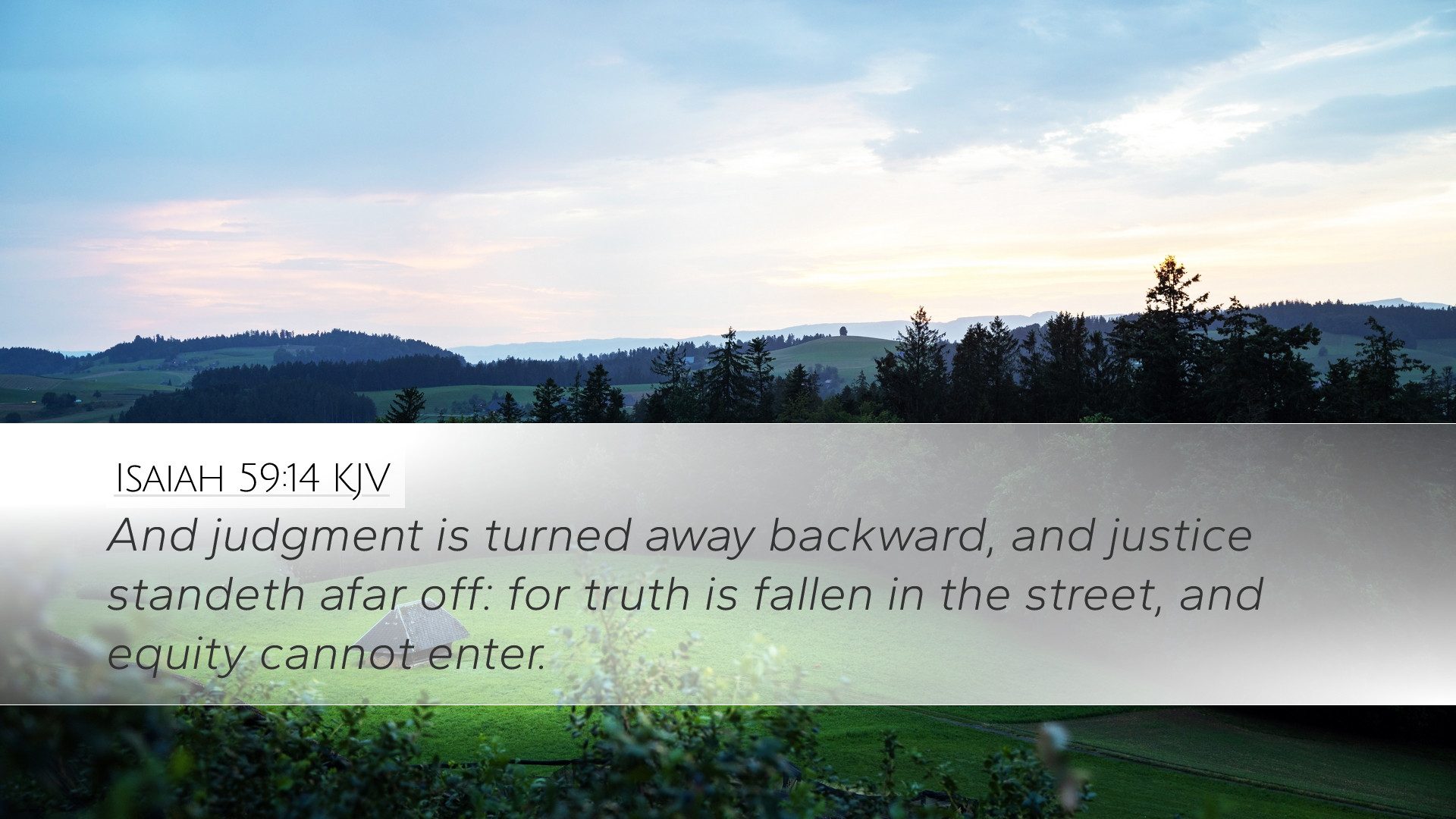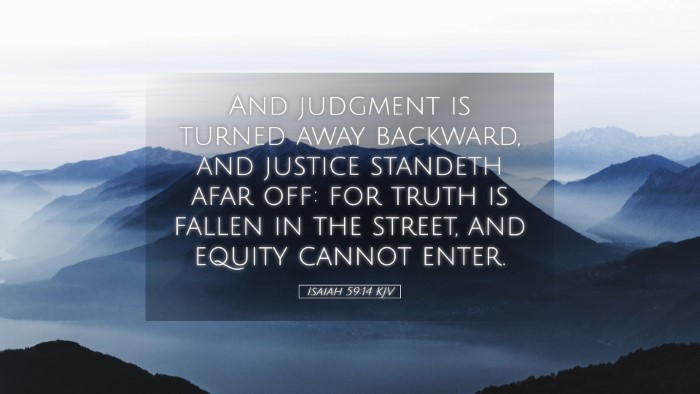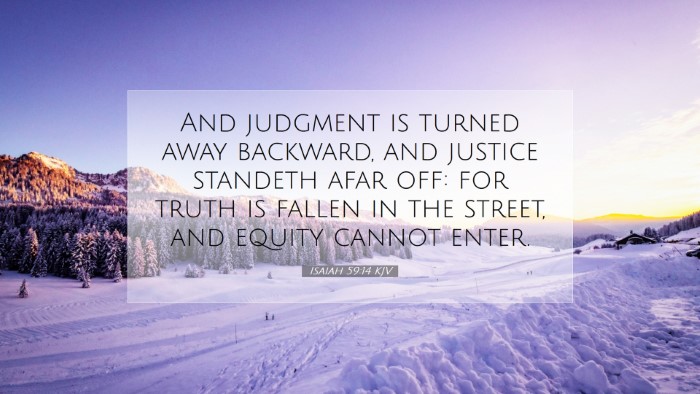Commentary on Isaiah 59:14
Text of Isaiah 59:14: "And judgment is turned away backward, and justice standeth afar off: for truth is fallen in the street, and equity cannot enter."
Introduction
Isaiah 59:14 paints a vivid picture of societal breakdown where justice and truth are absent. This verse serves as a profound commentary on the moral and spiritual decay present in the nation, making it particularly significant for pastors, theologians, and students of the Bible. This commentary combines insights from prominent public domain scholars to explore the depth of this scripture.
Contextual Examination
Isaiah, often recognized as one of the major prophets, delivers messages that were not only relevant to the people of Israel during his time but resonate with readers today. The broader context of Isaiah's writings reveals a people disconnected from God, grappling with sin and a consequent withdrawal of divine favor. Understanding the historical background is essential for a comprehensive grasp of the gravity of Isaiah 59:14.
Historical Background
During the period of Isaiah's prophecy, Israel was facing significant corruption and moral ambiguity, which undermined social integrity. As commented by Matthew Henry, "the people of Israel had forsaken the ways of the Lord and faced the consequences of their actions." The lack of justice and truth pointed out in this verse highlights the urgent need for repentance and divine intervention.
Thematic Analysis
This verse encapsulates vital themes such as justice, truth, and societal decay. The juxtaposition of judgment and justice being "turned away" highlights a reversal of divine order and moral uprightness.
Judgment Turned Backward
The phrase "judgment is turned away backward" denotes a perversion of justice. In the view of Albert Barnes, this reflects "the failure of the legal system and societal norms to uphold righteousness." The absence of sound judgment suggests a comprehensive moral collapse, emphasizing the need for true discernment rooted in God's law.
Justice Standeth Afar Off
Justice being "afar off" signifies its inaccessibility to the people, portraying a society devoid of fairness and equity. Adam Clarke remarks that this distance of justice implies "a separation between the divine standard of righteousness and the behaviors of the people." There's a longing for justice that remains unmet, invoking a sense of despair among the population.
Truth Fallen in the Streets
The metaphor of truth "fallen in the streets" is powerful; it conveys vulnerability, suggesting that what was once esteemed has been trampled upon and discarded. Matthew Henry asserts that "the very foundations of society are undermined when truth is ignored." This depicts a culture that no longer embraces honesty, leading to chaos and disorder.
Reflection on the Implications
The ramifications of Isaiah 59:14 reach beyond ancient Israel, serving as a cautionary tale for contemporary society. It challenges believers to reflect on their own contexts, identifying zones where judgment and justice may similarly be neglected.
For Pastors and Church Leaders
Pastors can utilize this scripture to underscore the importance of upholding truth and integrity within their congregations. The church has a prophetic role to challenge the societal norms that stand contrary to scriptural values.
For Theologians and Scholars
Theologically, this verse invites scholars to explore the nature of divine justice and human responsibility. The disconnect between God's demands and human actions prompts a deeper theological inquiry into sin, repentance, and redemption.
For Students of the Bible
Students can draw lessons on the significance of moral fortitude and the consequences of societal failures. Isaiah 59:14 serves as a rich ground for discussion concerning the nature of sin and the urgent need for spiritual awakening in the contemporary world.
Conclusion
Isaiah 59:14 stands as a poignant reminder of the essential need for truth and justice to prevail in any society. The insights gleaned from public domain commentaries elucidate this verse's significance, providing powerful admonitions for personal reflection and collective societal engagement.


